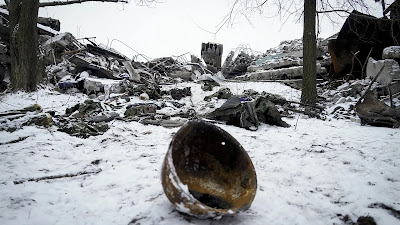A surprisingly negative - even brutal - assessment of Putin and Russia's performance and realistic expectations from the White House special envoy involved in peace negotiations.
He would not make such comments without agreement from the president, which suggests that the US is turning up the pressure on Putin to agree to a deal. JL
Russia will not win its war against Ukraine, U.S. special envoy Keith Kellogg said on May 1, pointing to the Kremlin’s failure to achieve any major progress on the battlefield over the past year and a half. “The Russians didn’t take Kyiv. They haven’t moved west of the Dnipro River. They haven’t taken Odesa. They’ve lost hundreds of thousands of troops, and they’ve really achieved nothing. They’re advancing by meters, not miles. And the Ukrainians are fighting hard on their own land." He said Russia must come to terms with the fact that it will not win the war. At the same time, he noted, Ukraine is in “a good position.”
























